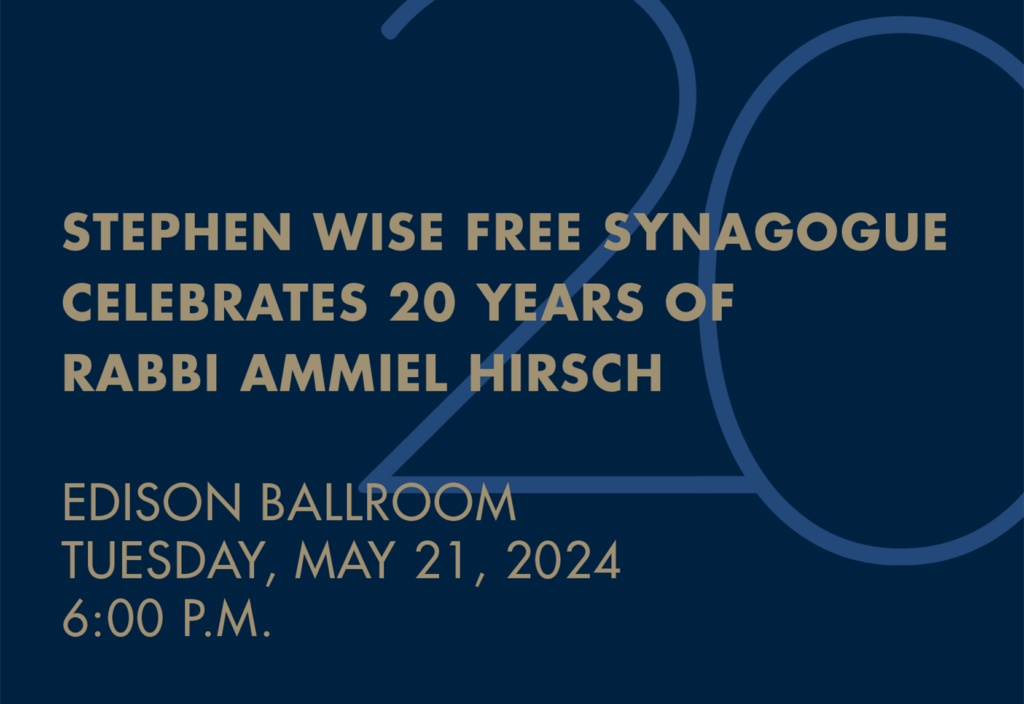On Yom Kippur, in the absence of an official response from the Reform movement to Pulitzer Prize-winning author Michael Chabon’s recent criticism of Judaism as “divisive” and Jewish intramarriage as “a ghetto of two,” Rabbi Hirsch summarizes where the movement should be, and explains that progressive Jewish thinking today tends to mistakenly deemphasize Jewish particularism in favor of universalism when both are important.
On Kol Nidre, Rabbi Ammiel Hirsch reflected on his 30 years as a rabbi and how we come to develop wisdom and faith: “The world is bigger than any one of us. This realization that so much of what I do cannot be brought under my full control is the beginning of wisdom. And only after we have failed over and over again can we cherish life’s successes. This is when we develop that thing called faith. Not a rote recitation of religious doctrine – but a deeper devotion that seeks to affirm life despite its hardships, unfairness, injustice and finality.”
“Think about how it feels to be in touch with our deepest truths. How does it feel to earnestly express feeling sorry, or to take in another’s heartfelt apology?” During the High Holy Days, Rabbi Samantha Natov encourages us to acknowledge our vulnerability and find meaning together as a community.
“If what some people mean by ‘religion should stay out of politics’ is that we should never engage in the social challenges of our times – never speak about the here and now, but only the hereafter – then it is something that Judaism cannot accept. We have a moral obligation to speak about, and act within, the political process,” said Rabbi Hirsch, who, in his Rosh Hashanah sermon, discussed the moral role of religion in politics.
“As Jews, we carefully coordinate each element on our plate in order to observe kashrut laws. But just as our tradition is obsessed with details, it also knows there is great beauty in the final product – we must find a way to pay attention to both and to honor both.” Rabbi Rena Rifkin explores how we are defined by both tiniest facets of our stories, and the sum of those parts.


